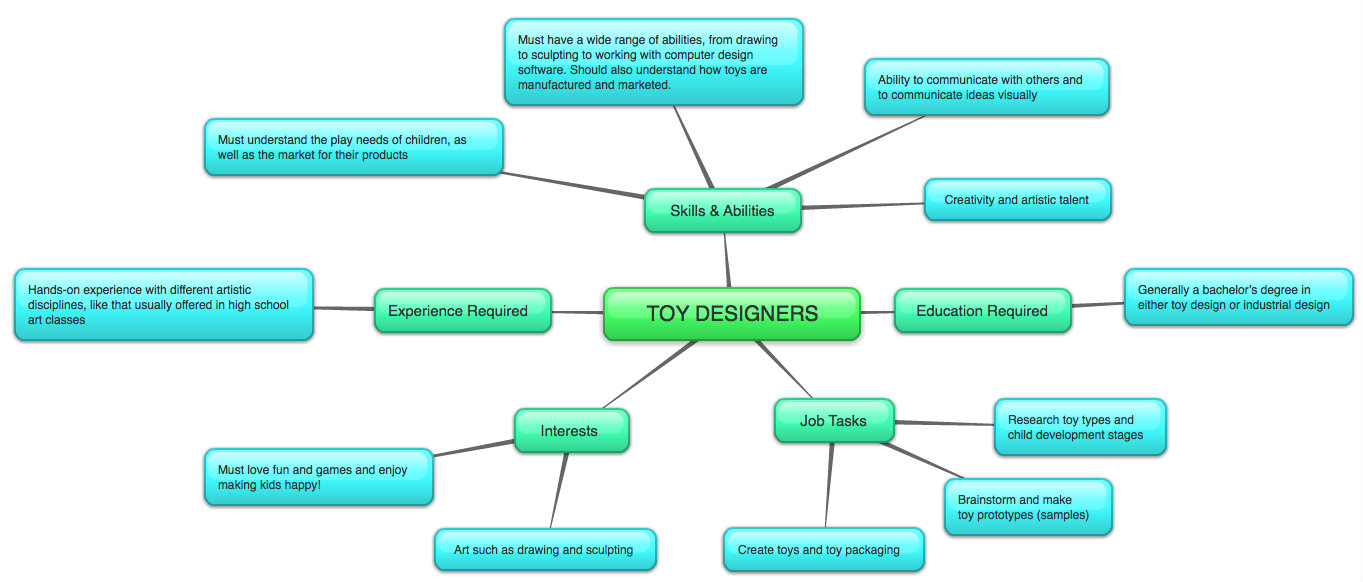Whenever you’re learning any new concept, it can be helpful to use a mind map for better understanding. A mind map is a diagram that represents ideas; it’s a visual aid you can create to organize the information you’re reading. It serves as a study tool particularly when reading long, detailed, or complex documents. Mind maps are also useful in essay/article planning and writing, brainstorming, creating presentations, and organizing website content. When you draw a mind map, you identify and visualize the key points in an article or a lesson.
For example, let’s say you’re researching information on employment and careers in the U.S. One popular website for career information is the Bureau of Labor Statistics. Although it’s a valuable resource, its articles can be long with a large amount of facts. To help distill the information, a reader can create a mind map to outline and summarize the most important information and see the connection between the key points.
The mind map below is based on a Bureau of Labor Statistics’ article (PDF) on toy designing careers. The following pre-reading questions ask about significant points regarding toy designers; the answers are then placed in the mind map:
- What are some of toy designers’ typical duties?
- What interests, skills, and abilities do toy designers need?
- What kinds of experiences are helpful in pursuing a toy designing career?
- What education/training is required to go into toy designing?
Once the mind map is completed, you can see that it’s a quick overview of the article and topic.
To create a mind map, you can use mind mapping software, some of which are free for teachers and students, or go the tech-free route and hand draw your map in your notes. I used Adobe Illustrator to create the map below.

For more information on mind maps in learning, check out the following articles:
Basics of mind/concept mapping